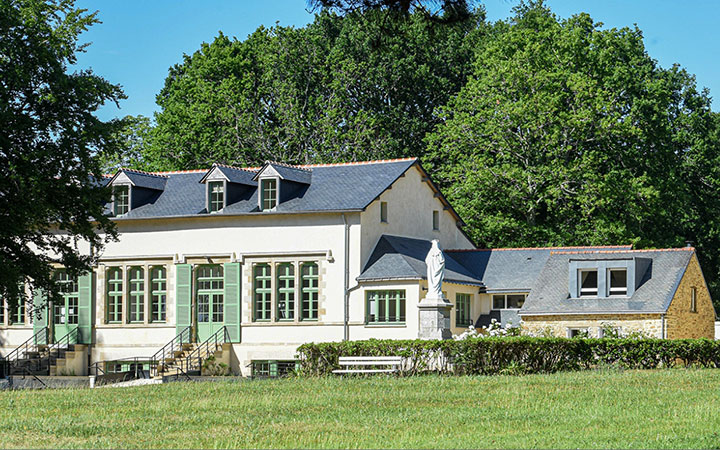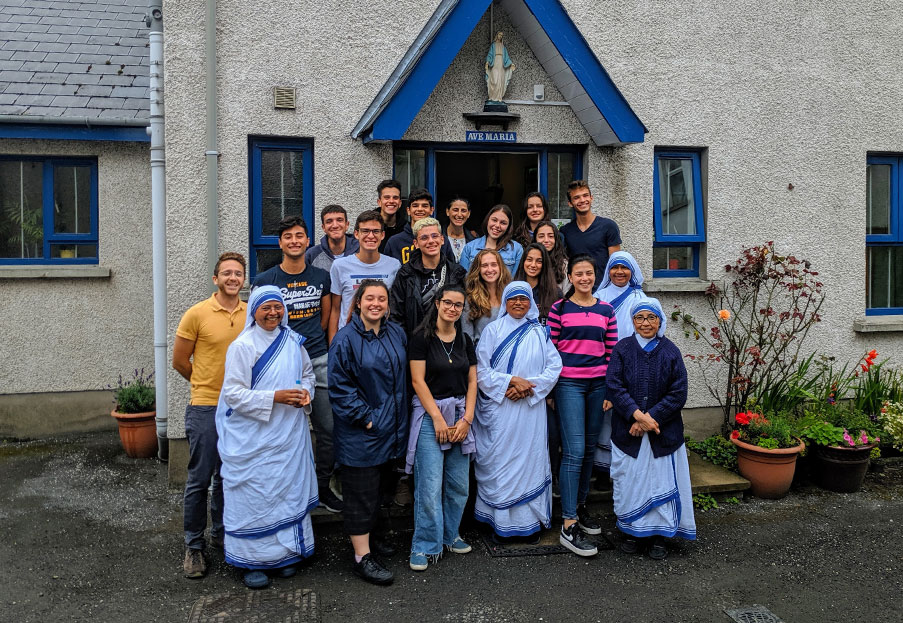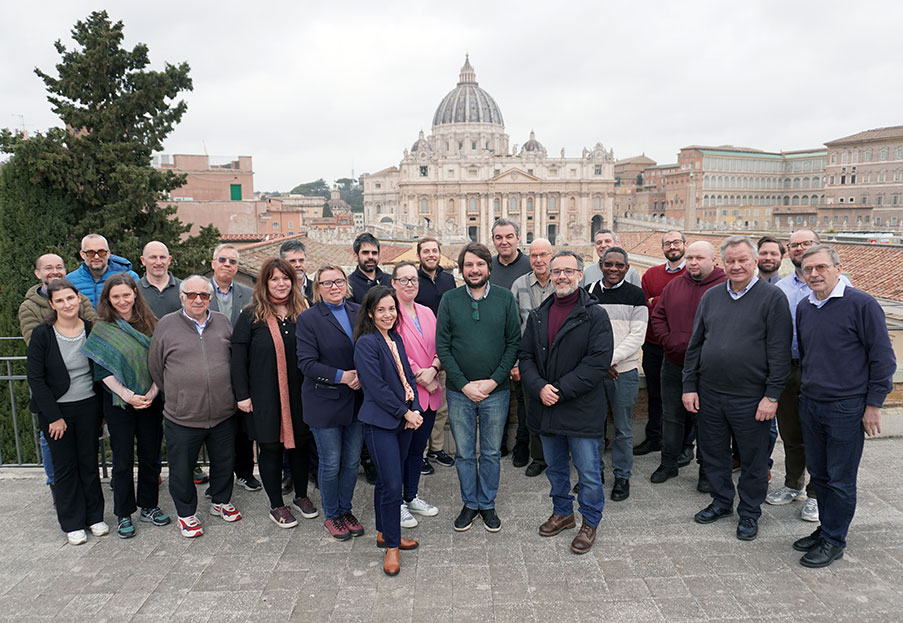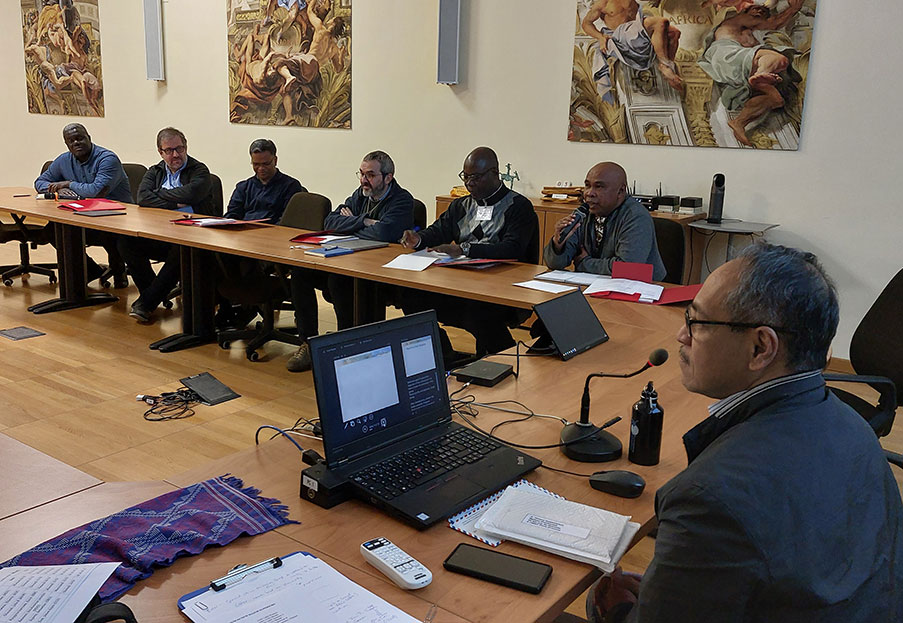A transformative and enriching upheaval
The Spiritual Centre of Penboc’h in Brittany
By the community of residents of Penboc’h - Province of French Speaking
Western Europe
[From “Jesuits 2021 - The Society of Jesus in the world”]
In 1663, the very first house in the world to be totally dedicated to retreats was founded in the Breton city of Vannes by the Jesuit Vincent Huby. He became its first director. Some 20 times a year, the Spiritual Exercises were given there to groups of hundreds of men. However, the world’s first ever “retreat house” was shut down after the suppression of the Society of Jesus. Only in 1975 would this particular, and by then traditional, Jesuit mission re-emerge, when the Jesuit School in Vannes freed up a large holiday house in the idyllic spot of Penboc’h, on the shores of the Gulf of Morbihan (“little sea” in Breton). This proved the ideal opportunity to re-open a spiritual centre. Over the next 40 years, classic retreats based on the Spiritual Exercises were the main activity on offer here. However, over time, the numbers of people open to this type of retreat has dwindled.
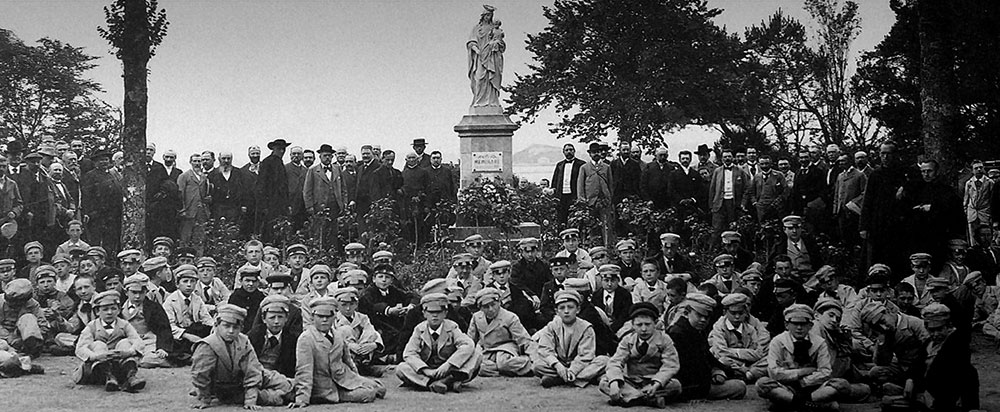
In 2013, a group comprising many sectors of the Society began an intense and open two-year process of reflection on the future of Penboc’h. This led the Provincial, Jean-Yves Grenet, to suggest the Centre should embrace new complementary approaches: It should be open to the poor and vulnerable and open up to professionals and the world of finance and politics. Along the same lines, the Provincial asked us to try out two new experiences: to have a mixed residential community composed of Jesuits, women religious, and lay people living at the Centre and to appoint a lay director to oversee it.
That is how in September 2015 we arrived here, discovering this magical place on the shores of the gulf of Morbihan. We began to get to know each other as well as the staff and volunteers – spiritual companions, guides, and session trainers – who had been working at the Centre for years.
Our mission, following the logic of the
Provincial’s insights, led us to reflect on our strengths and preferences.
Little by little, responsibilities were shared out among us. Times of prayer
and liturgical and other celebrations structured our community life, which was influenced
overall by our experience sharing our daily lives and learning to respect each
other’s differences. Our individual perspectives on the world and personal
faith journeys were gradually enriched as we lived together as men and women,
with our own issues and in different states of life.
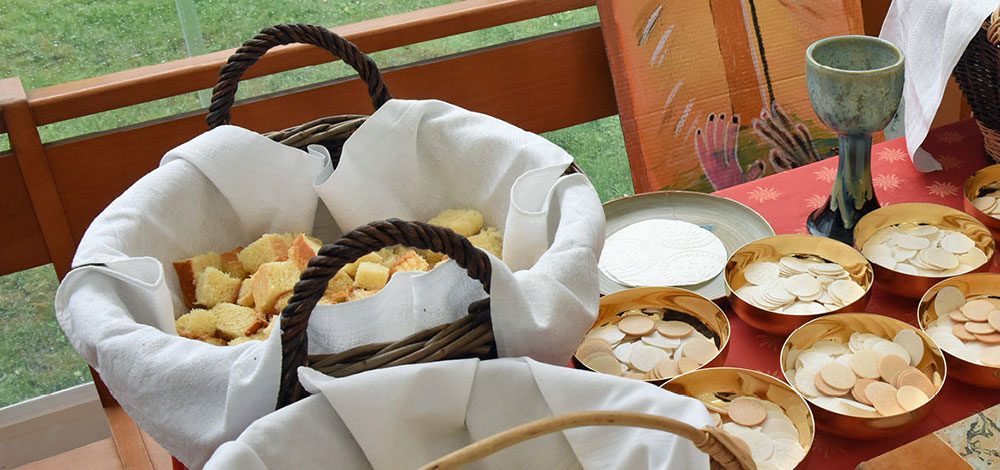
Opening ourselves up to vulnerability has shaken us up but also allowed us to become aware, little by little, that vulnerability is not an end in itself. Instead, we are learning that embracing vulnerability transforms it into a sign of fraternity. In fact, it is transforming our every activity, retreat, course, weekend session, and workshop through the testimonies of people happy to be accepted for who they are in their needs.
After a positive three years of growth, the Centre was forced to relocate so that the buildings could be refurbished. This was due in part to their age and in part to changing regulations about health and safety and access for people with reduced mobility. We moved further inland, settling in slightly grim temporary lodgings. It was hellish. Yet thanks to the help of our many volunteers, we were able to make our lodgings cosy, even exuding a fraternal warmth. Our trials only helped to strengthen our community.
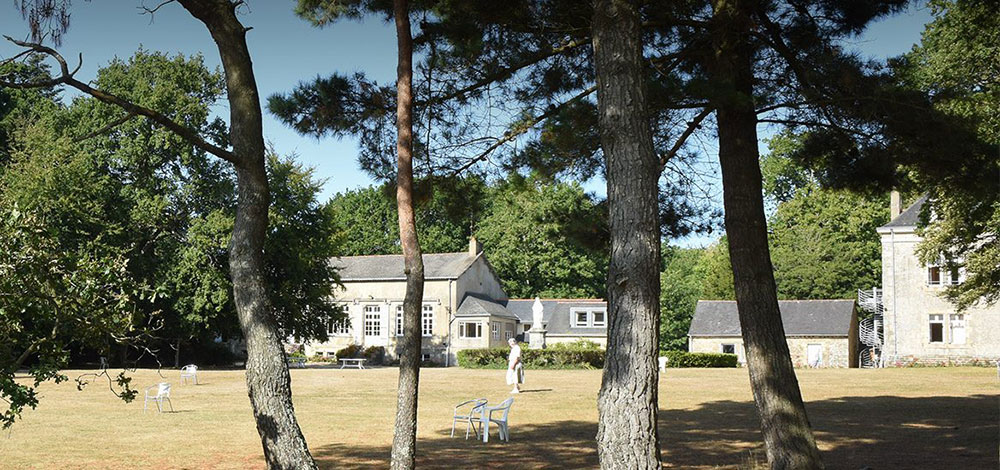
Around the same time, the encyclical Laudato Si’ was beginning to make an impact, urging us, as individuals and as communities, to begin a journey of conversion and care for our Common Home. It has encouraged us to consider how we might live out this conversion in all the Centre’s activities, even down to the management. So, we began to ponder how we might integrate the teachings of Laudato Si’ into the retreats and sessions based on the Exercises; we also sourced local suppliers and transport for our provisions and looked into the possibility of setting up shared vegetable gardens at the Centre, etc.
We used our time as “exiles” inland to review our first three years in the light of the Provincial’s vision, although we never stopped our daily activities to do so. Everyone took part in this: our volunteers, staff, the community, the board of directors, and friends. This lasted 18 months, and each of us had time to express our thanks for the graces received, the obstacles encountered, and our hopes and wishes for the future.
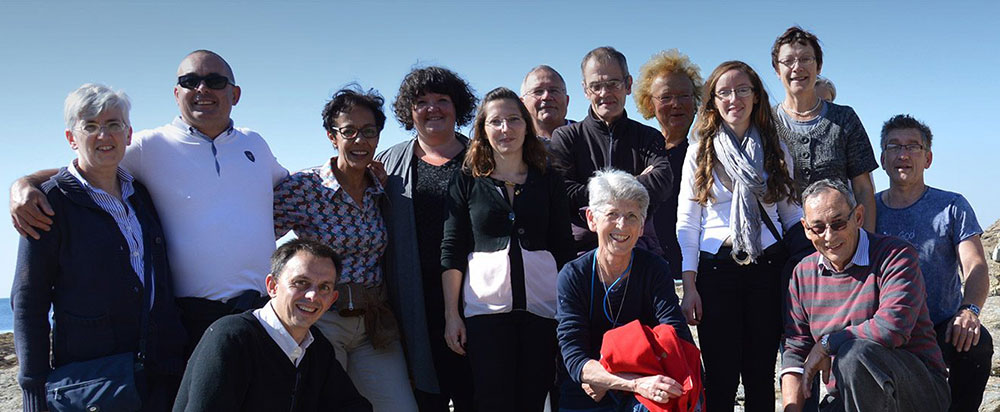
In February 2019, after a universal consultation of the Society, the Superior General of the Jesuits promulgated the Society’s new Apostolic Preferences. Again, we pondered how best to integrate the new preferences into our review and how we could, without exhausting our resources, enlarge our mission by including them.
So, in a nutshell, that is us: a new team, an experimental community life, a new vision, house moves, Laudato Si’, welcoming all kinds of vulnerabilities... All these events have shaken us up and still do so, by helping us to transform often-hard situations into spiritual nourishment so that they may become the heart, soul, and bedrock of the Centre.
In 2020, once the building works are complete,
we can at last return to the “real” Penboc’h. We will do so transformed by all
these intense, at times difficult experiences, enriched by our many encounters,
full of confidence in our capacity for change and for allowing ourselves to be
changed, yet fully aware that it is God, not us, who controls the outcome of
events.
